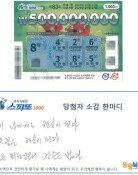Farmers Shocked by Sale of Imported Rice for Meals
Farmers Shocked by Sale of Imported Rice for Meals
Posted December. 30, 2004 22:32,
The government confirmed its plan to extend the grace period of imposing tariffs on rice by an additional 10 years on December 30, one day before the expiration date of rice negotiations (end of this month.) The governments move lessened, though temporarily, the burden of complete market opening on the domestic rice market.
However, imported rice is planned to be sold in the market for meals for the first time starting next year, in return for extending the grace period, raising predictions that it will send an emotional shockwave to Korean rice producers.
The Negotiation Was a Half Success-
The final result of the negotiation released by the governments rice negotiation team on December 30 was not much different from the tentative one on December 17. Yet, obligatory rice imports for 2014, marking the 10th year of the grace period, were cut by 0.04 percent point from 410,000 tons (eight percent of the annual average rice consumption from 1988 to 1990) to 408,700 tons (7.96 percent.)
If Japan and Taiwans agreement to import an obligated eight percent for six years and eight percent for one year respectively in return for the grace period of imposing tariffs on rice is any indication, Korea is evaluated to have led the negotiation in its favor as it accepted 7.96 percent for 20 years from 1995 to 2014. Another accomplishment on the side of Korea is that it opened the possibility for aiding North Korea by agreeing not to include the re-exporting of imported rice to a third country in the implementation plan papers.
However, the number, 7.96 percent, is much greater than the governments goal, 7.4 percent, and Korea is at an economic disadvantage considering the Korea Rural Economic Institutes analysis that theres a 95 percent chance that the expected import will be less than 7.1 to 7.5 percent when the imposition of tariffs is declared. Huh Sang-man, Agriculture and Forestry minister, explained, We thought itd be safe 세 opt for postponing tariffs imposition first and make a decision according to Doha Development Agenda negotiations outcome, as the result will come out only three years later.
A Drop in Rice Prices is Inevitable-
There are predictions that the sale of imported rice to consumers, the main point of the negotiation, will be made possible starting in June 2005 at the earliest. That is because time is needed for the WTO member states review of the governments implementation plan, ratification process in the National Assembly, and preparation of process to sell imported rice in public.
The Korea Rural Economic Institute estimated that the sale of imported rice for meal would drop the rice price by 10 won per kilogram for every 10,000 tons that are released to the market. In other words, rice prices in every 80-kilogram-bag are expected to fall by about 2,000 won.
Still too Far to Go-
Despite the confirmation of the governments plan, it remains to be seen whether the plan will undergo the WTO member states review comfortably. Some negotiation partners such as India and Egypt may disapprove of the plan in the review process, as the negotiation with them has yet to be finished.
Provided that it takes upward of one year for the Korea-Chile Free Trade Agreement to be ratified in the National Assembly, it is hard to preclude the possibility that the ratification process of the rice negotiation result will be prolonged. The Ministry of Agriculture and Forestry said, in this case, Korea might be put in a position to open its market unexpectedly due to its potential duty to impose tariffs on rice.
The National Solidarity of Farmers urged, in a statement right after the governments announcement on December 30, the government to withdraw its plan to submit its paper to the WTO and negotiate again from the start, saying, The governments rice negotiation outcome will bring catastrophic results to the agricultural industry and rural communities.
Ji-Wan Cha cha@donga.com







